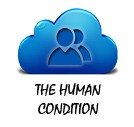 |
||
   
Balancing Act: The Newsletter (No. 235, March 2019) BALANCING ACT: BLENDING LIFE, WORK, AND RELATIONSHIPS® Balancing Act® is our registered trademark. You are encouraged to share the contents with others with appropriate attribution. Please use the ® whenever the phrase "Balancing Act" is used in connection with this newsletter or our workshops. Balancing act is in four sections this month: 1. Ironies 2. Musings 3. The Human Condition: Failure 4. ORTIYKMWOYBNTO Department Connect with me on Facebook, Twitter and LinkedIn. Free consulting newsletter: The Million Dollar Consulting® Mindset. Listen to my new, free Podcast Series on iTunes or on AlanWeiss.com: The Uncomfortable Truth. We are now on a WEEKLY schedule!  • I know weight restrictions are out, but if a flight attendant, because of girth, can’t walk down the aisle without bumping everyone’s shoulders, can he or she really lead a plane evacuation expeditiously? • The people who complain the loudest about some transgression are usually overcompensating because they are guilty of it. • Most anger is self-anger redirected outwards to preserve one’s sense of worth. • When we hold a grudge we disempower ourselves because the person who is the object of our wrath doesn’t realize it and can’t free us. • The automated spell checks make more errors and create more work than they save, and I find it’s far more efficient to disable them. • The free wifi on otherwise excellent JetBlue seldom works well. I’d rather pay for something that’s reliable. • We never think to have a rental car washed even though we’re often parking them in front of prospects and clients and even taking them to lunch in it. • We’re outraged at misogynism, yet we tolerate it in a great deal of rap music and make the writers and performers wealthy listening to it. • A flight attendant will tell you his or her primary job is safety, but 99% of their time is engaged in service. • Business top executives who refuse (or are too stupid) to shop their own businesses or talk to actual customers wonder why people complain about service levels.  My son was visiting a while ago and he was watching me feed our ducks, which consists of me tossing food down the concrete steps that lead to the pond. He admonished me not to throw the food onto the steps themselves because the ducks would harm their beaks trying to retrieve it. “Jason,” I said mustering my usual impatience, “I’ve been doing this for 30 years. How many ducks have you seen with damaged beaks?” We all make assumptions not just in the absence of evidence but also in the face of evidence to the contrary. “I’m lousy at closing business,” someone will tell me, despite the fact they closed four six-figure deals in the past three months. Or someone will claim, “I fell three times on the ski trail today.” Yes, but you’re skiing black diamond hills. When we were told not to go into the water within an hour of eating, and dutifully sat by counting off the final 60 seconds, we ignored all the kids who ran immediately into the water and didn’t drown. After all, the beach had signs about jellyfish and riptides, but nothing about eating. We assign a lot to “superstition,” but we embrace more superstition that we think we do. Most sharks are harmless for humans. Most spiders and snakes are harmless. Seagulls, however, will steal your food every chance they get. If you’re not physically active, a diet isn’t going to help you a whole lot. In the emergency exit row you’re asked by the crew if you are willing to and able to perform what’s necessary to remove the window in an emergency. Reflexively, everyone says yes, but no one is really tested. (I love the warning printed in English on the emergency cards to inform the crew if you can’t read English.) What I’m telling you is to use your head. Stop assuming. Ducks know how to eat off any surface because they have to do so to survive. Messing with them as some “do-gooder” will inevitably cause more harm than good. One more example: You might choose to heed the advice and “play dead” when you suddenly confront a bear. You’re told not to run. But you don’t have to outrun the bear, you just have to outrun the slowest person with you. I can do that.  I co-authored Lifestorming with Marshall Goldsmith, which is now in three languages. One of our basic beliefs is that if you can’t get something done (changed, improved, begun, ended, and so forth) in 30 days by yourself, the overwhelming probability is that it’s not going to happen at all unless you get help. This could be cleaning out the garage, creating a new product offering, writing a book proposal, calling a sick friend. No matter what the reasons, from procrastination to fear, from other priorities to feared incompetence, 30 days is more than enough to get something begun or completed. To think that taking another 30 days will improve things is folly. I’ve talked to a lot of people who were 30 days behind on their client work or tax reporting. When I checked in the next month they were 60 days behind. No matter how much someone rationalized or claims some kind of ephemeral “progress,” they are kidding themselves. They (you) need help. Seeking help is not a sign of prolonged weakness. Rather, it’s a sign of intelligence that the existing weakness cannot be allowed to continue unabated. That help may be a family member, a friend, a coach, an expert in some area, some research, or a support group. No matter the source, the intervention is needed. Simply waiting and facing the same issues repeatedly over a lengthy time does not lead to success or even change the probabilities. “Trial and error” has horrible odds for success, and nonetheless requires the trials, not rumination. The best people in sports, entertainment, business, politics, education, and other fields use coaches. These aren’t people with some degree from a “coaching university” (who certifies the certifiers?). They are people who are known to be proficient in at least part of what you want to do. That’s why professional sports teams have so many coaches, and why a golf star will still take lessons from a swing coach. It’s why successful people go to therapists, and why top actors still take acting instruction. Failure is rarely fatal, and it can be a learning experience instead of a setback if you allow it to be. But if the garage is never cleaned out, if the sale is never made, if the dying friend is never contacted, then it can be fatal, in that it can kill your future and murder your soul.  I had a new heating and air conditioning system installed in the carriage house where I’ve built my massive train layout on a property that I own. When I checked on it post-installation it wasn’t working and I went ballistic. I got the service people out there that afternoon. One of them greeted me pleasantly, walked to the small room where the equipment was, looked at the side, turned the system on by flicking a bright red switch from “off” to “on,” wished me a good day, and left. 
Don't forget to share this on social media: Having problems viewing this email? Click here. © Alan Weiss 2019 |
Balancing Act® is our registered trademark. You are encouraged to share the contents with others with appropriate attribution. Please use the ® whenever the phrase "Balancing Act" is used in connection with this newsletter or our workshops.

Experts will make mistakes on occasion. Only people who try nothing new will never make a mistake—except never trying nothing new. Alan Weiss |
|
